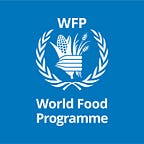Mothers on the front-line of fighting malnutrition in Timor-Leste
In villages, health clinics and homes across Timor-Leste, women are learning how to fight malnutrition — one of the biggest challenges this young nation faces.
Half of children under 5 in Timor-Leste are stunted, which means they aren’t getting the nutrients they need to grow and develop. Adolescent girls and women, meanwhile are experiencing high rates of anemia.
But across the country, change is underway. Meet 3 women who are learning how to cook healthy food for themselves and their children to give them the best possible start to life.
Alexandrinha — dreaming of a better future for her children
Alexandrinha do Carvalho Correia lives with her 2 sons, her husband and 10 relatives in a small cottage in Railako-Ermera, a 3 hour drive from the capital, Dili.
Their home is surrounded by green mountains, a river and their farm. They eat what they grow, mostly corn, eggplant, sweet potatoes, pumpkins and some different leafy green vegetables, depending on the season, in addition to several fruits.
Besides running the household, Alexandrinha has also been volunteering as a receptionist in the Railako Community Health Centre, about 40 minutes walking distance, for the past two years. Her husband, Jacob Moniz, takes care of the farm while looking after the children while she is away: “I look after the children when she is at work, and I help with cooking and washing as well,” he says.
Supporting mothers to fight malnutrition
Alexandrinha delivered her second child at national hospital in the capital, Dili, in August 2018. After giving birth, she was identified as malnourished and enrolled in the Moderate Acute Malnutrition (MAM) programme for treatment and prevention, run by the Ministry of Health with support from the World Food Programme. Under the MAM programme, she started receiving Super Cereal, the nutritious supplementary food for pregnant and nursing women. This cereal contains essential vitamins and minerals that pregnant and breastfeeding women need to stay healthy.
“Super Cereal helps me and my baby a lot, I can see the difference. When I had my first child, I did not eat Super Cereal, I was not eating well, and it affected my baby when I breastfed him. But with my second child you can see he is healthier and I have very good appetite and energy, and breastfeed him quite well,” she said.
“We grow all types of vegetables and fruits, but we hardly eat meat. We only eat meat whenever there is a traditional ceremony. We consume mostly what we grow. But the Supplementary Food help makes it better.”
When Alexandrinha was asked about what she wants for her children’s future to be like, she simply said that she wants her children to stay healthy and get all the nutritious foods they need to grow.
Ermelinda — learning how her family can eat a healthier diet
In Dili, Ermelinda Soares is a single mother of five, whose husband passed away last year before her youngest child was born on Christmas Day. Her older daughter has graduated from high school and is now helping her mother looking after her siblings.
Ermerlinda works at local supermarket and relies on this income to support her children.
She was previously enrolled in the Moderate Acute Malnutrition (MAM) Programme, where she received Super Cereal as part of her treatment when she was pregnant and while she was breastfeeding.
“For me and my children a meal means rice and one type of vegetable. As long as it fills our stomach,” she said.
After attending several sessions on nutrition and cooking demonstrations, Ermerlinda said she started to understand more about the importance of a balanced diet and its impact on her children.
“Now I understand a bit about nutrition, but our economic situation does not support me to provide a proper meal for my children. We eat meat very rarely, but now I know that I can exchange meat with tempe or tofu which is cheaper but has same source of nutrition.”
Claramina — getting support when she needs it the most
WFP staff member, Inacio dos Santos met Claramina at a SISCa (health clinic) in Manatuto Municipality. She is a mother to an 11 month old son and is pregnant with her second child.
WFP and clinic staff identified her as suffering from acute malnutrition and she was given Super Cereal to supplement her diet for the first time.
“I am happy to receive the Super Cereal, I will follow the instructions and the information that I have received,” she said.
Claramina could only breastfeed her child for five months, as she became pregnant again and stopped. Inacio encouraged her to breastfeed her second coming baby for two years and try to consume a varied and balance diet.
Families in rural areas rely on SISCas as a source of health information and treatment. Here, Claramina has learnt about the important role that nutrition plays in her child’s life and how it will benefit their physical and mental development. Inacio explained to her how to prepare meals for her family, using local products that are in season.
The World Food Programme in Timor-Leste is working closely with the government especially Ministry of Health to end malnutrition in all its forms, supporting the government to ensure everyone has access and availability, demand and consumption of nutritious diets in all circumstances, so that what people eat matches what they need to live a healthy productive life.
The World Food Programme in Timor-Leste supports Ministry of Health promote positive behaviours on nutrition, health and sanitation and care practices to prevent and treat malnutrition in Timor-Leste and achieve Sustainable Development Goals (SDG) 2 for Zero Hunger by 2030.
Read more about WFP’s work in Timor-Leste.
Story written by Denita Baptista.
